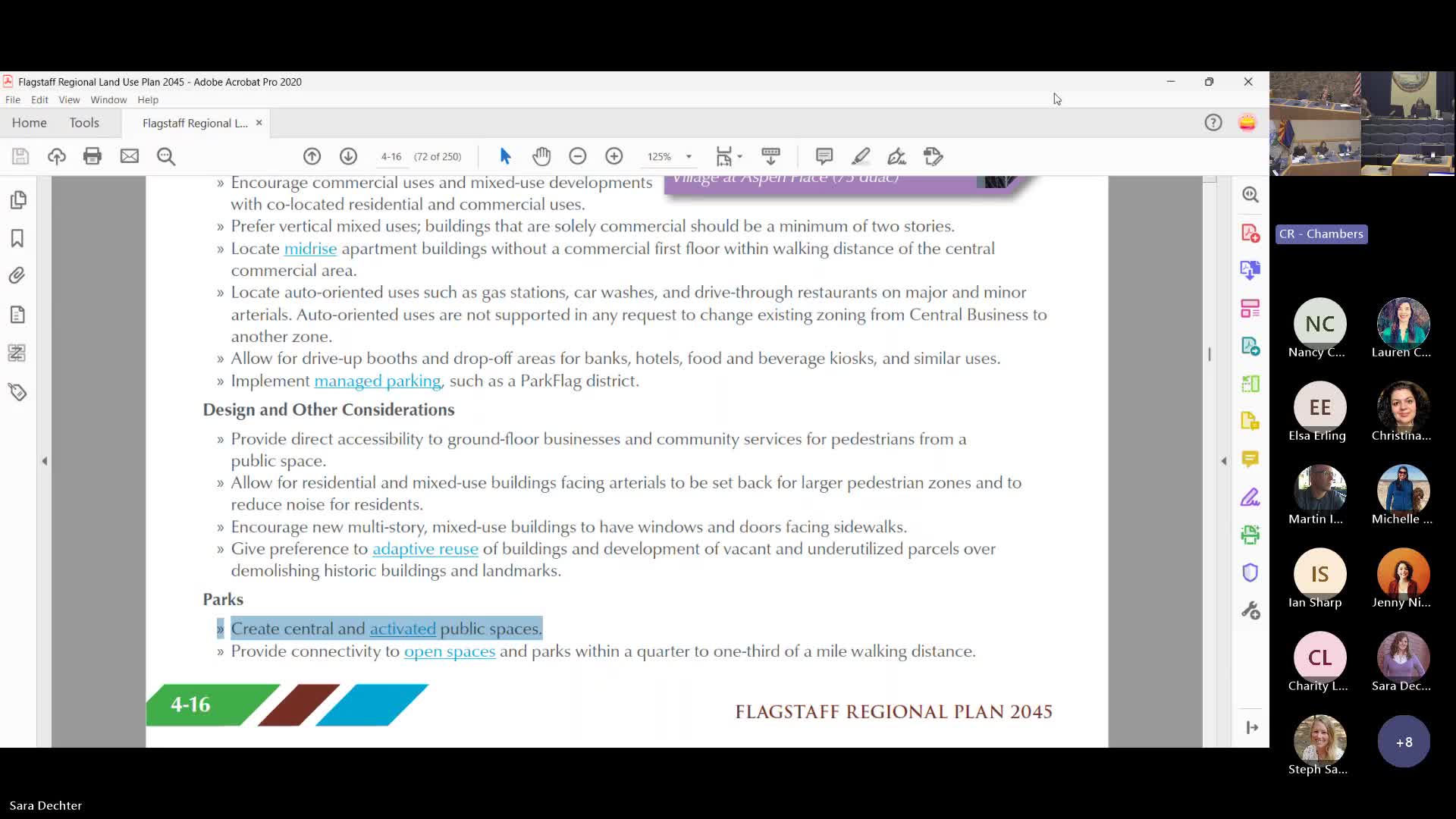Commission mostly declines broad accessibility and universal‑design edits; accepts some targeted clarifications
Get AI-powered insights, summaries, and transcripts
Subscribe
Summary
Commissioners generally declined broad insertions of “accessible” and “universal design” across the draft plan, citing existing federal and local requirements, but accepted targeted clarifications such as a revised paratransit definition.
Multiple commenters asked the commission to add language emphasizing accessibility and universal design across housing, parks and transportation policies. Commissioners and staff discussed whether inserting the words would add value or create redundancy with existing legal requirements.
Commissioners and staff repeatedly noted that accessibility elements (for example, ADA compliance in parks and accessible housing units) are already required by federal law and by existing city plans. Rebecca Sayers, parks and recreation staff, told the commission the city’s “park spaces are required to be accessible similar to any other public spaces or code requirements.” Commissioner Ian Sharp and others said many of the suggested edits would therefore be unnecessary and could be duplicative.
Several items were presented and voted on individually. Examples: a proposed insertion of “accessible” into a parks guideline received no staff recommendation and commissioners voted it down; a proposal to add the word “accessible” to housing insecurity and supportive‑housing language prompted mixed votes (three commissioners voted yes and three voted no on one specific line); and staff’s recommended clarification to the paratransit definition (to specify service for people with disabilities who may be unable to use standard bus services) was accepted by the commission.
Outcome: Most of the broad, across‑the‑board insertions of 'accessible' or 'universal design' were rejected as unnecessary or duplicative. Staff and commissioners agreed to address a few targeted edits (for example, the paratransit definition) and to be cautious about adding glossary entries for terms that have authoritative legal definitions elsewhere.
Why it matters: Language in the plan signals priorities and can affect how staff and decision makers interpret policies. Adding accessibility language where federal code already governs can be redundant but leaving it out may be read by some stakeholders as a missed emphasis on equity and access.
Source: Staff presentation and commissioner discussion, Sept. 29, 2025 Flagstaff Planning and Zoning Commission meeting.
